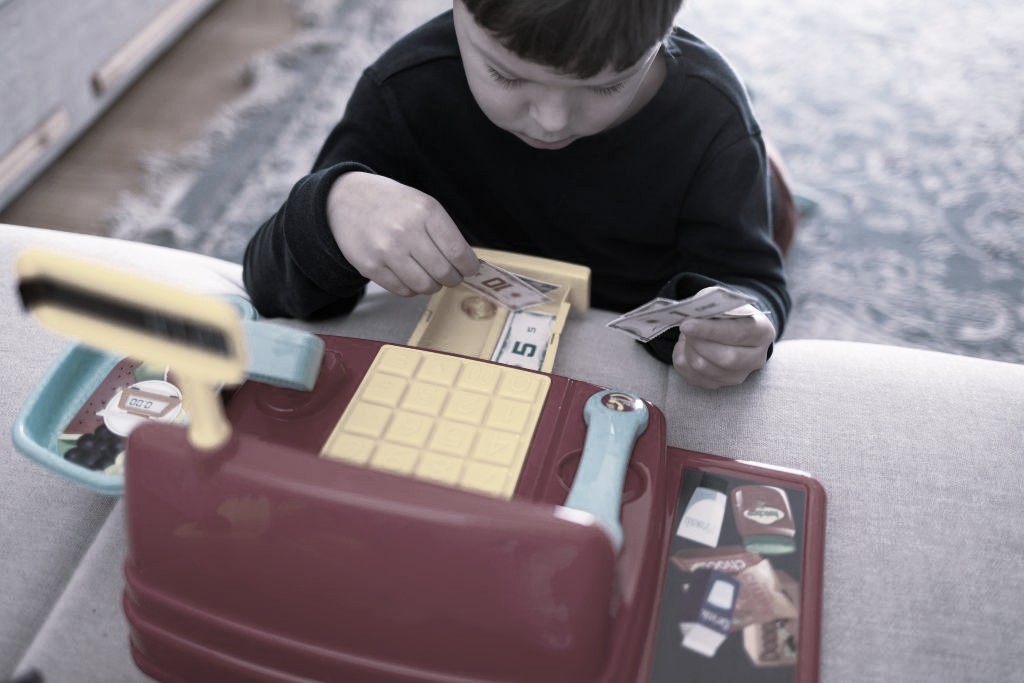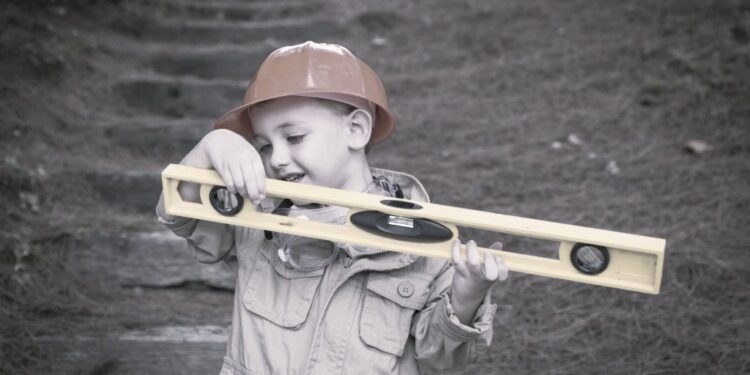In today’s fast-paced world, it’s easy to feel overwhelmed by the rapid changes in technology and modern culture. Yet, amidst all this change, the timeless lessons of our past remain invaluable, including when talking about paramount life skills for kids.
Many of us look back on our school days with a sense of nostalgia—remembering lessons that went far beyond textbooks and exams. We learned manners, hard work, communication, and responsibility; lessons that shaped who we are today. As we guide the next generation, it’s essential to pass along these fundamental life skills that have stood the test of time. So let’s explore vital life skills for kids, with a blend of cherished nostalgia and modern practicality, to ensure your child is well-prepared to succeed in life.
The Importance of Life Skills For Kids
Before diving into specific skills, it’s important to understand why life skills matter. Life skills are the abilities that enable us to handle the everyday challenges of life, ranging from communication to financial management. These skills form the foundation of personal and professional success, and when learned early, they help children navigate the complexities of adult life with confidence.
While academic knowledge is important, the practical lessons we learned outside the classroom often make the real difference. Whether it was fixing a leaky faucet, balancing a checkbook, or simply knowing how to treat others with respect, these lessons from our past have proven indispensable over time.
 1. Communication Skills
1. Communication Skills
The Art of Conversation
One of the most enduring lessons from our own childhood is the value of clear and respectful communication. In our schools of yesteryear, children were taught to speak politely, listen attentively, and express their thoughts clearly. These practices were not merely academic exercises—they were the building blocks of healthy relationships and effective teamwork.
Related: 19 Survival Skills You Should Teach your Children This Summer
Key Elements:
 Active Listening: Encourage your child to listen actively when someone is speaking. This means maintaining eye contact, nodding, and asking questions to clarify understanding. Active listening is the foundation of empathy and effective communication.
Active Listening: Encourage your child to listen actively when someone is speaking. This means maintaining eye contact, nodding, and asking questions to clarify understanding. Active listening is the foundation of empathy and effective communication.- Clear Expression: Teach your child to articulate their thoughts clearly. Whether it’s sharing their feelings or explaining a problem, being able to communicate well can prevent misunderstandings and foster mutual respect.
- Respectful Discourse: In our modern, often polarized world, respectful conversation is more important than ever. Reinforce the value of treating others with kindness and maintaining composure, even during disagreements.
Practical Ways to Foster Communication
- Family Dinners: Use meal times as an opportunity to talk about everyone’s day. This tradition, common in many households of the past, helps reinforce open communication and strengthens family bonds.
- Storytelling: Share your own childhood stories and encourage your child to tell theirs. This not only builds communication skills but also creates a sense of connection and understanding across generations.
- Role-Playing: Practice common scenarios, such as greeting a neighbor or apologizing when wrong. Role-playing can make learning these skills fun and memorable.
 2. Financial Literacy
2. Financial Literacy
Lessons from the Past
Many of us remember the days of saving our allowances in a piggy bank, learning the value of a dollar before the era of digital money. Today, financial literacy life skills for kids are more crucial than ever, yet the fundamental principles remain unchanged. Understanding money management, budgeting, and saving are skills that empower individuals to achieve long-term financial stability.
Key Elements:
- Budgeting: Teach your child the basics of budgeting. Explain how to track income and expenses, and the importance of living within one’s means. Budgeting is a practical skill that can prevent financial pitfalls later in life.
- Saving: Emphasize the importance of saving a portion of any money they receive, whether it’s allowance, gifts, or earnings from small jobs. Understanding the concept of saving early on builds a foundation for financial security.
- Investing and Value of Money: While investing might seem like an adult-only topic, the basics can be introduced to children. Explain the idea of making money work for them, and the value of making thoughtful, informed decisions about spending.
Practical Ways to Teach Financial Literacy
- Allowance Management: Provide your child with a small allowance and guide them on how to divide it into spending, saving, and giving. This practice mirrors the simple financial lessons we learned as children.
- Games and Apps: Use age-appropriate games that simulate financial scenarios. Board games like Monopoly or digital apps designed for financial education can make learning fun and interactive.
- Real-Life Involvement: Involve your child in small household budgeting tasks. Let them help with grocery shopping and compare prices, which can offer a tangible understanding of how money is managed in real life.
 3. Critical Thinking and Problem-Solving
3. Critical Thinking and Problem-Solving
The Foundation of Resilience
Critical thinking and problem-solving are skills that not only help children succeed academically but also prepare them to handle life’s uncertainties. In our past, we were often encouraged to “think outside the box” and find creative solutions to everyday problems—a trait that remains just as valuable today.
Key Elements:
- Observation and Analysis: Encourage your child to observe their surroundings and ask questions. Critical thinking begins with curiosity and the willingness to examine situations from different angles.
- Decision Making: Teach your child how to weigh pros and cons before making decisions. This approach helps in developing a balanced perspective and reduces impulsivity.
- Creativity in Problem Solving: Allow your child to explore various solutions to a single problem. Emphasize that there isn’t always one “right” answer, and that creativity can often lead to the best outcome.
Practical Ways to Enhance Critical Thinking
- Puzzles and Games: Engage your child with puzzles, board games, and brainteasers. Activities like chess, Sudoku, and logic puzzles stimulate cognitive function and strategic thinking.
- Real-Life Challenges: Present everyday challenges as opportunities for problem-solving. Whether it’s figuring out the best way to organize their room or planning a family outing, encourage your child to brainstorm and implement solutions.
- Encourage Questions: Foster an environment where asking questions is welcomed. Help your child research answers and think through the implications of different decisions.
Additional Life Skills Worth Teaching
While communication, financial literacy, and critical thinking are cornerstones of success, there are other important life skills that can round out your child’s education:
4. Time Management
Learning to manage time effectively is a skill that will serve your child well throughout their life. Encourage the use of planners, calendars, and to-do lists. In our nostalgic view of the past, many of us learned to value punctuality and organization as the bedrock of responsibility.
5. Basic Self-Sufficiency
Basic skills such as cooking, cleaning, and simple home repairs instill a sense of independence. Teaching your child how to prepare a meal, manage a household chore, or even mend a torn piece of clothing fosters confidence and self-reliance.
6. Respect and Empathy
Perhaps one of the most enduring lessons from our past is the value of treating others with respect. In a world that often seems divided, empathy and kindness are skills that can bridge gaps and create lasting relationships. Encourage your child to volunteer, help neighbors, and engage in community service.
Bringing It All Together – Teaching Life Skills For Kids
Life skills are the threads that weave together a successful, well-rounded individual. They are as critical today as they were in the past—and perhaps even more so in an era of rapid change. By teaching our children the fundamentals of communication, financial literacy, and critical thinking, we’re not only equipping them with practical tools for the future; we’re also preserving the timeless values that have guided generations before us.
Incorporate these lessons into daily routines, share stories of your own childhood experiences, and make learning an interactive, enjoyable process. In doing so, you’ll foster an environment where your child can grow, thrive, and be prepared to face whatever challenges come their way.
Ultimately, the goal is to help your child succeed—not just academically or professionally, but as a well-rounded, resourceful individual capable of navigating the complexities of life with wisdom and confidence.
You may also like:
 25 Things We Did as Kids That Would Get Someone Arrested Today
25 Things We Did as Kids That Would Get Someone Arrested Today
An Insanely Effective Way to Build a 5-Year Food Stockpile (Video)
Survival Food That Kids & Adults Will Love






















Teaching kids life skills like communication, problem-solving, and responsibility is just as important as academics. Even fun activities, including strategy and learning games, can help build focus and critical thinking. Platforms like GOG Games
offer engaging ways to develop these skills while keeping kids entertained.